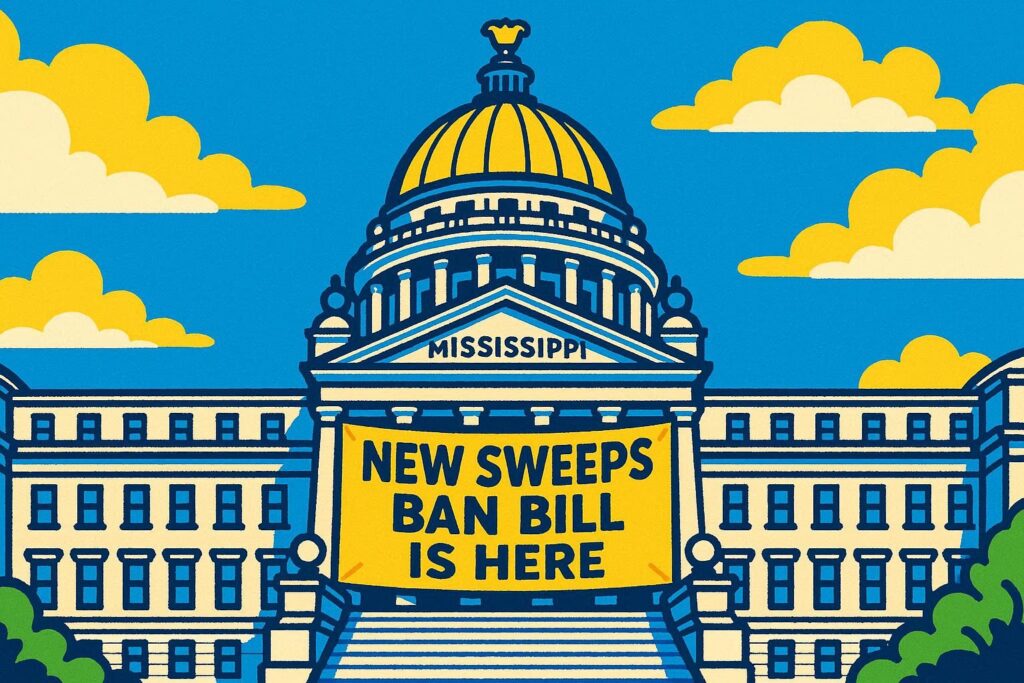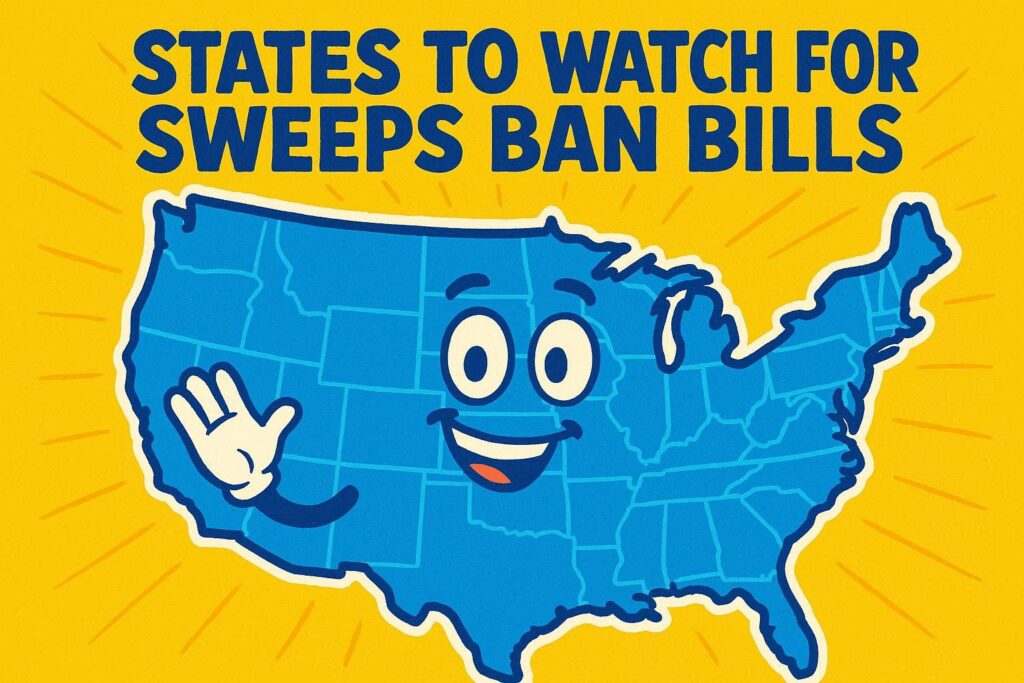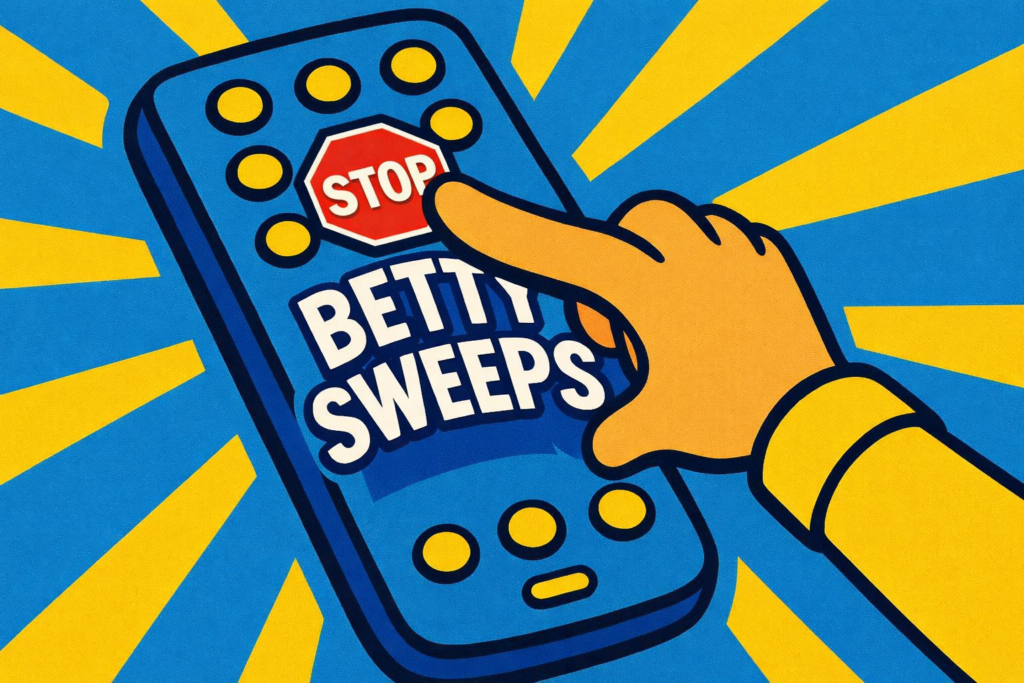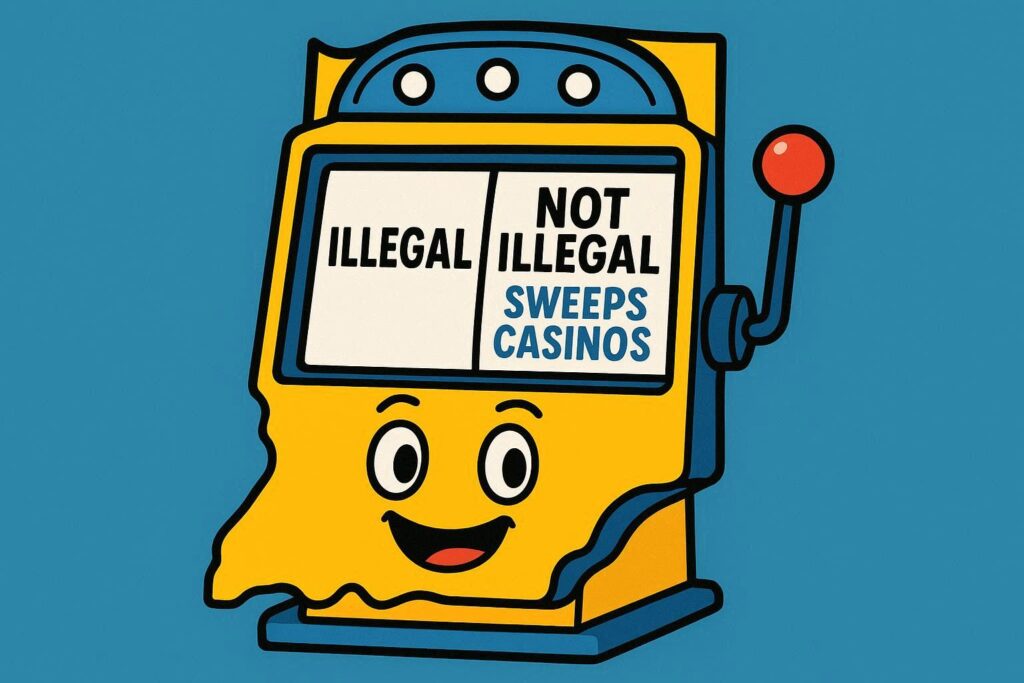The leader of the online sweepstakes casino industry is trying to prove to states it’s willing to comply with any and all regulations — and, maybe more importantly, willing to provide tax revenue to the states.
On Wednesday, VGW, the Australian operator that owns Chumba Casino, LuckyLand Slots, and Global Poker, began charging sales tax on Gold Coin purchases on all three of its sites “across several US states,” a VGW spokesperson told Sweepsy.
“We acknowledge this is a change for some of our players, but as the legal framework has evolved over time, we’ve determined it is the appropriate time to take this action,” the spokesperson told Sweepsy. “This is part of our commitment to upholding the highest standards of integrity and compliance, and our focus now is on ensuring players are well informed and supported as required.”
VGW also updated its terms and conditions Wednesday to reflect the new sales tax policy. The new clause 25.4 now reads:
Under certain state laws, Gold Coin purchases may be subject to certain taxes, depending on your location. You agree your purchase of Gold Coins is made with the understanding that such tax will be added at the time of purchase. In jurisdictions where tax is not added by us at the time of purchase, you are solely responsible for any taxes applicable from your Participation, including transaction taxes (e.g. sales/use tax, value added taxes or digital sales taxes) applicable to your jurisdiction. Additionally, you are solely responsible for reporting any income and income taxes associated with winning valuable prizes.
As of Wednesday evening, Sweepsy was aware of players in Kentucky, Illinois, Arkansas, Pennsylvania, and Hawaii receiving notice about the new sales tax, although we do not have a definitive list of which states will now see a sales tax on VGW sites.
Here is the message players started receiving Wednesday regarding the new tax:
“Please be advised that purchases may be subject to tax depending on your location. Any applicable tax will not be counted toward your purchase limit.”
“Sales tax is common in the US and helps state governments raise revenue, but differs across the country,” the VGW spokesperson said. “Some states don’t have sales tax, while in other states that do, the tax rates can vary. Local governments may also have additional taxes. As such, the total rate paid by players following this decision is dependent on their location.”
The timing — hello, California — is no coincidence
Earlier this week, Sweepsy reported that VGW had told California lawmakers it “would be happy to” start charging sales tax in order to find a creative way to share revenue with the state and prove it’s willing to do what it takes to carve out a place for itself in the legal California online gaming market.
That message was part of VGW’s lobbying effort in California to prevent Assembly Bill 831, which would ban online sweepstakes casinos, from passing.
“Rather than an outright prohibition, VGW and the social online games industry are asking that you park this rushed, gut-and-amend legislation and hear our side of the story,” a quote provided from VGW reads in a committee analysis for AB831. “We want to work collaboratively with the California Legislature on sensible legislation that creates a robust regulatory framework prioritizing consumer protection while simultaneously offering a new revenue stream for the state. The economic opportunity is significant. Based on industry projections by Eilers & Krejcik, California could generate annual revenue of $149 million through sale tax alone.
“Currently, there is no method for us to pay sales tax in California because ours is a digital product, but this is something we would be happy to do under an appropriate framework. We are also open to other potential sensible taxation frameworks and/or revenue stream to benefit the people of California.”
AB831 passed the Senate Governmental Organization Committee on Tuesday. It now moves onto the next step, the Senate Public Safety Committee, which will hear testimony on the bill the morning of July 15.
Now, instead of simply telling lawmakers it’s willing to charge a sales tax and share that tax revenue with the state, VGW is trying a different tactic by putting the policy in action — extending that olive branch of tax revenue opportunities to states currently considering the legality and future of online sweepstakes casinos within their borders.
How a sales tax works in the sweeps marketplace
A sales tax is a tax that state governments impose on the sale of a product or service. It’s typically a percentage added to the price at the time of purchase — like 8%, for example. So a product that costs $50 would have a $4 sales tax.
However, online sweepstakes casinos have traditionally avoided needing to charge any type of sales tax because the products they provide — Gold Coins — are purely digital products.
States generally don’t tax virtual currency used strictly within a platform for digital entertainment — unless it’s delivered with or tied to physical goods or taxable services.
So when you buy Gold Coins at a sweeps casino:
- You’re not buying a tangible product.
- You’re not buying a taxable service (like software, for instance).
- And the platform classifies the purchase as a non-taxable digital entertainment item.
But, yes, a sweepstakes casino can choose to charge sales tax and pay that tax back to the state voluntarily.
Charging sales tax could invite even stricter scrutiny, as the sweeps casino could be interpreted as implicitly reclassifying their product (turning “play-for-fun” coins into taxable goods) and risk inviting tax audits or legal redefinition of their business model.
But, at the same time, if done in coordination with a legal team that has reviewed all potential ramifications, a sweeps casino charging sales tax could be an advisable decision as part of a public relations or state partnership effort — showing state lawmakers the company is here to be a part of the state gaming ecosystem and pay into it, rather than a purely online platform with no attachment to the state, making money off its residents without giving back to the state.
Potential effects?
Beyond likely motivating other sweepstakes casinos to make a similar decision, in terms of impacting the sweeps debate, probably how you view this move depends on which side of the debate you already fall into.
Sweeps advocates will applaud this move as a creative way to demonstrate to states that sweepstakes gaming sites want to become part of a state’s legitimate gaming ecosystem.
Opponents, like California tribes and Light & Wonder, will call it a last-ditch effort and may cite potential legal ramifications.
Ultimately, the only opinions that matter, though, are of the state lawmakers.








